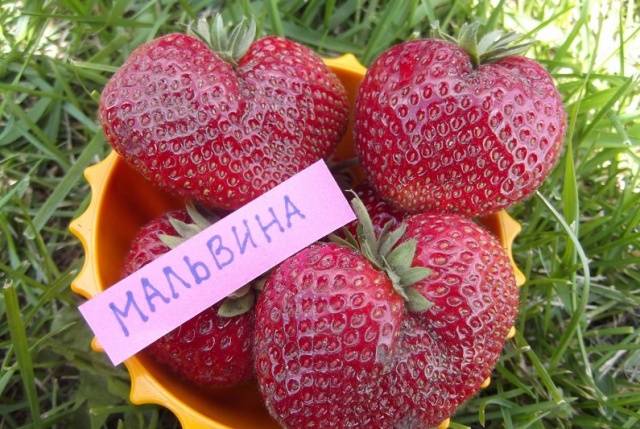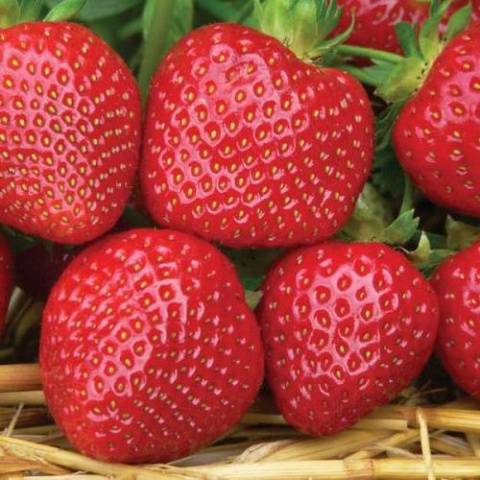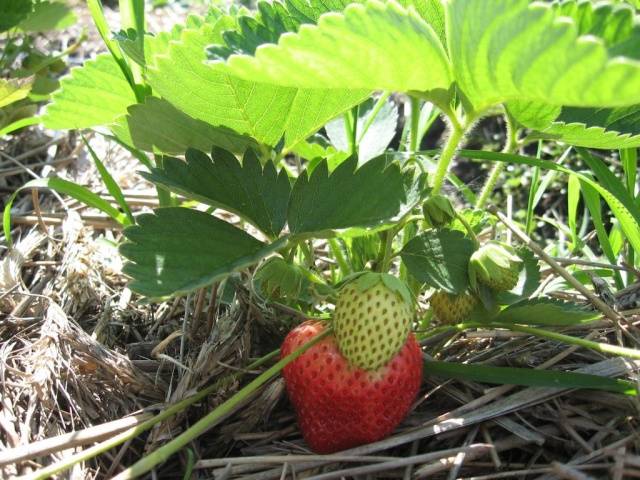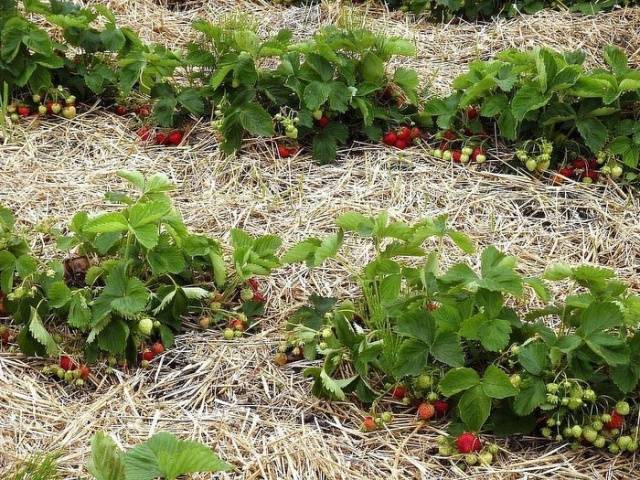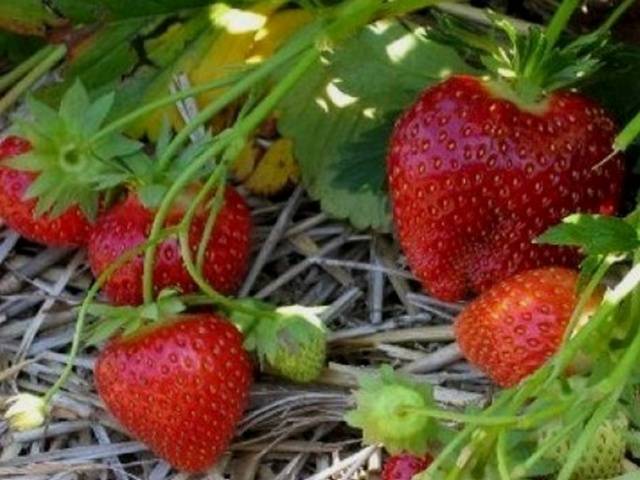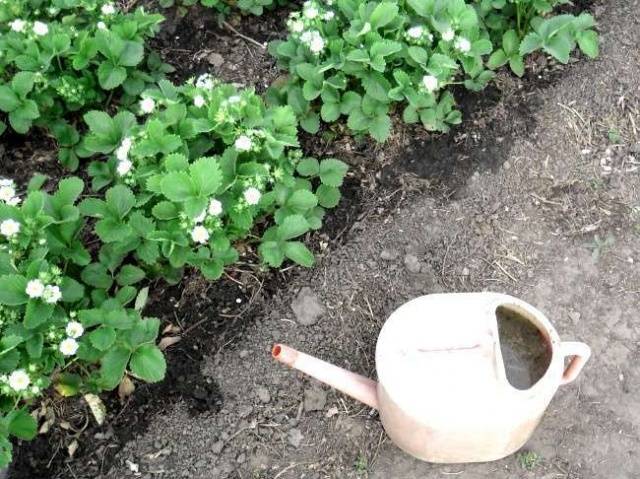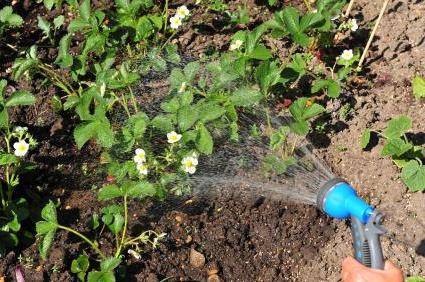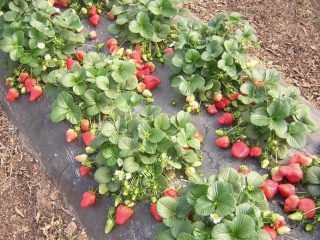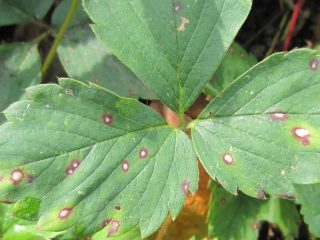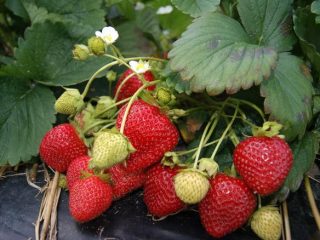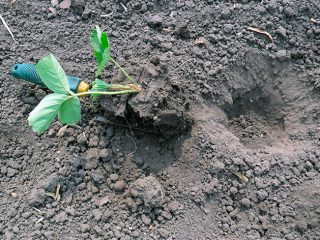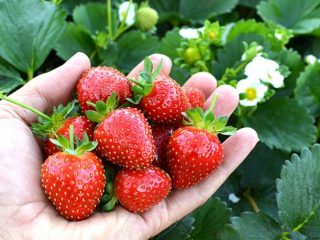Content
Every summer resident dreams of extending the strawberry consumption season. This tasty and healthy berry always comes in handy on the table, and is good in blanks. Not so long ago, a variety appeared in Germany that is ready to fulfill this dream. This is the Malvina strawberry variety. Created in 2010 by German breeder Peter Stoppel, this berry completes the strawberry season of single-fruiting strawberries, and finishes it off with shine, as Malvina strawberries are surprisingly good not only in appearance, but also in taste.
Reviews of summer residents about her are only enthusiastic, and to find out more about her, let's look at her photo and read the description of the Malvina strawberry variety.
Features of the variety
- Ripens very late. Depending on the region of cultivation, fruiting can begin from late June to mid-July.
- The fruiting period is extended and can range from 2 to 3 weeks, depending on the weather. In hot and sunny summers, delicious berries ripen faster.
- The shape of the berries is very beautiful, slightly resembles a heart, and the color is special. At the stage of technical maturity, it is no different from other varieties, but when fully ripe, it becomes saturated, it develops a cherry hue. In a word, this berry cannot be confused with any other.
- The taste of Malvina strawberries is beyond praise. It is quite worthy in technical ripeness, and when fully ripe, the berry becomes sweet and acquires a rich taste. On a nine-point scale, the tasters rated it at 6.3 points. The aroma is strongly pronounced, reminiscent of wild strawberries.
- The berries are rather heavy. At the first collection, it can reach 35 grams. The yield is not very high, up to 800 g can be harvested from a bush, but good agricultural technology allows you to raise this indicator to 1 kg - this is a good result.
- The berry is dense and juicy at the same time, but does not wrinkle or flow, which is quite rare for strawberries with such a good taste. It is a commercial grade that tolerates long-distance transportation well. To avoid spoiling during transportation of Malvina strawberries, pick berries at the stage of technical ripeness.
- Malvina strawberries have a small amount of berries - about 3% - can produce small leaves. This is not a disease, but a genetic trait that is quite rare.
- The plant itself can be characterized as follows: very powerful, with well-developed leaves and a large number of horns. It is pleasant to admire such bushes - at a height of 50 cm, they can have a diameter of 60 cm.
- The flower stalks of this variety are located below the leaves, so the berries are reliably hidden from the sun's rays and are not baked in the heat. The flowers are quite large, bisexual, therefore, this strawberry does not need a pollinator, the only one of all late varieties. So that the berries do not get dirty and do not hurt the ground under the bushes, you need to mulch with straw, or better with pine needles.
- Malvina's resistance to diseases and pests is good. But it is better to process it from thrips and weevils. She can get sick with verticillus and fusarium wilting, therefore, preventive treatments for diseases caused by fungal microorganisms are required. Choose the correct predecessors for strawberries of the Malvina variety and weed the beds in time - this reduces the risk of disease.
- This variety has an average frost resistance. In regions with cold and little snowy winters, the plantation will have to be covered with straw or spruce branches for the winter.
If there is little snow, scoop it up from other beds.
Like most varieties of strawberries, this variety has its own characteristics in care and planting.
Landing
Such powerful bushes require a considerable area of nutrition for their development and fruiting. Therefore, the landing pattern will differ from the generally accepted one. At least 60 cm should be left between the plants, and the row from the row should be at a distance of 70 cm. Of course, such bushes take up a lot of space, but the variety is worth it.
Planting dates will also differ from the usual strawberries of other varieties. Spring planting is preferable for Malvina. In the first year, the harvest will not be plentiful, but by the second year, having increased up to 8 horns over the summer, the strawberry will present with a large number of large and beautiful berries. Due to the peculiarities of fruiting, autumn planting is postponed to the end of August - the time when strawberries are laid for the next year's harvest. Early frosts can prevent young strawberry seedlings from fully rooting, which is fraught with freezing of autumn plantings in winter.
Vigorous plants of Malvina remove a lot of nitrogen from the soil.
Care
Proper care is an important part of getting a full harvest.
Top dressing
This strawberry does not tolerate a lack of nitrogen. To compensate for it, you can make 2 foliar dressings per season with a solution of nitrogen fertilizer, for example, ammonium nitrate with a concentration 2 times less than for root dressings. They should be carried out during the period of growing leaves and protruding peduncles.
In the first case, the leaves can get burned, and in the second, the fertilizer simply does not have time to be absorbed.
For strawberries of the Malvina variety, organic dressings with the addition of ash and superphosphate are preferable. Nitrogen is released from organic matter gradually. This allows you to maintain its sufficient concentration for a long time.
Strawberries need no less nitrogen than potassium. You can feed her with a potassium fertilizer that does not contain chlorine, such as potassium sulfate. This feeding is carried out at the beginning of the growing season. An alternative option is feeding with ash in dry form or in the form of a solution. Ash contains, in addition to potassium, many trace elements necessary for plants to grow successfully. Advice! After dry dressing, the beds must be loosened and watered.
Watering
Malvina needs moisture more than other varieties for good development and obtaining a full-fledged harvest. With its lack, the berries can have a bitter taste. Therefore, watering, especially during the dry season, is mandatory for her.
The dark color of the material can lead to drying out of the root system, which is undesirable for Malvina.
All the features of the variety are shown in the video:
Conclusion
Late-ripening strawberries of the Malvina variety will extend the season for the consumption of this healthy berry. Thanks to its excellent taste, it will become the favorite variety on the strawberry plantation.
